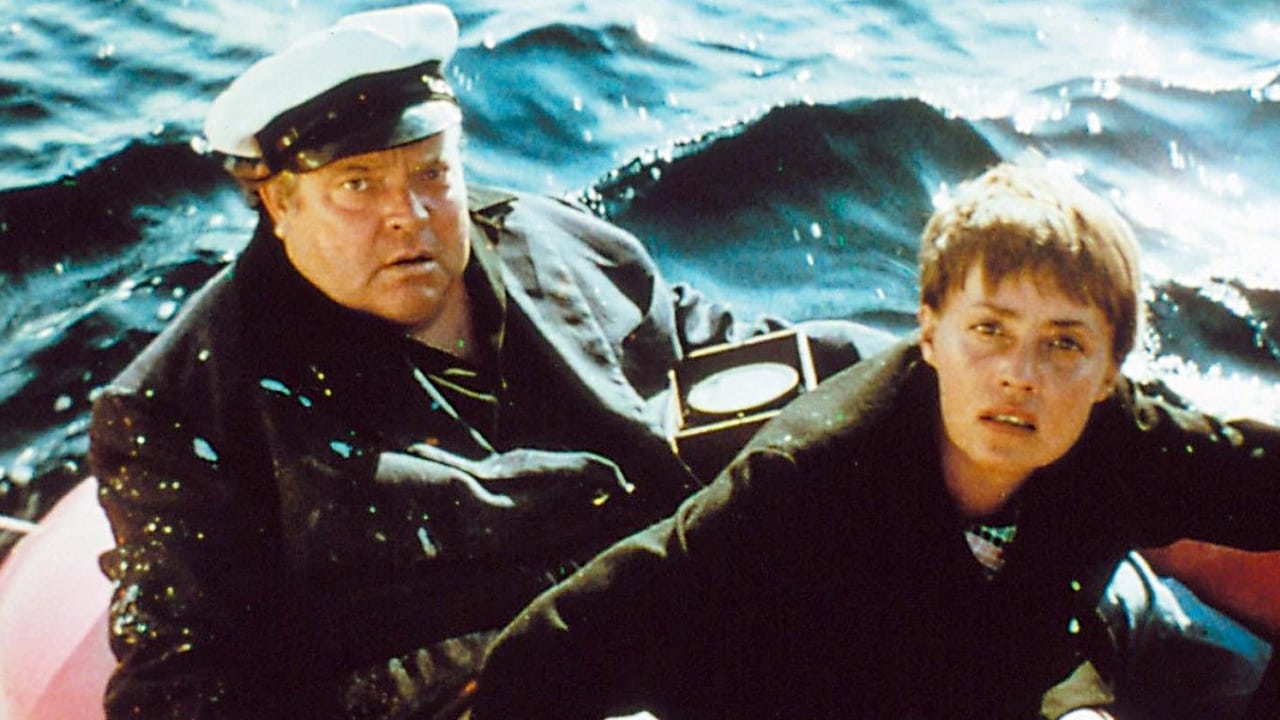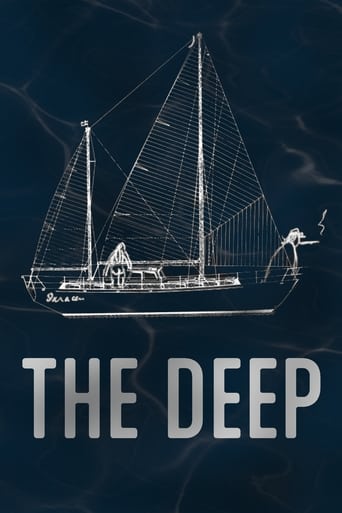Lilcount
Orson Welles' rendition of Charles Williams' 1963 novel "Dead Calm" had the potential to be one of his better films, if one is to judge from the work print shown at MOMA on Nov. 22, 2015.The original negative has disappeared. This particular work print was edited by Munich Film Museum Director Stefan Droessler from the two surviving work prints, one in black-and-white, the other in color. Some scenes, mainly reaction shots, were not filmed. Much dialogue is missing, mostly of the Russ Brewer character played by Welles, who clearly planned to post-synch his own lines. Occasionally Welles loops speeches by both Laurence Harvey and Michael Bryant; even in his fifties, his talents as a mimic were superb.(Oddly, in one scene, Harvey lapses into his natural British accent instead of the Southern drawl he affected in the rest of the film.)The camera work is good. Several scenes were shot with a red or blue filter to create the impression of darkness. Welles' eye lingers lovingly on the often undraped form of Oja Kodar, his partner in work and life.The script exists, and live narration by Herr Droessler filled in missing scenes and dialogue. The plot is surprisingly faithful to the novel, retaining all five characters instead of the three in the Phillip Noyce version. Welles amends the ending a bit and adds a framing device not in the novel. His treatment includes much of his typical humor.Since Welles himself believed that films were really made in the editing room, and since he edited only a small fraction of the material himself, we will refrain from rating the film. But after seeing the work print, and a nine minute trailer he did complete, we can affirm our belief that "The Deep" would have been a fine addition to the Welles canon.

